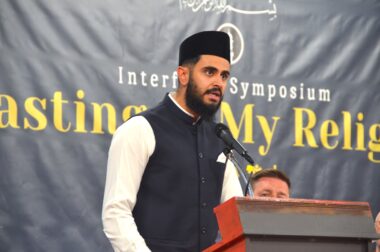On Sunday December 3, the WHO marks International Day of Persons with a Disability.
This year’s theme is achieving sustainable development goals for health and well-being for, with, and by persons with disabilities. In Australia, 4.4 million people identify as having a disability.
A La Trobe University expert is available to discuss the health inequities that impact persons with a disability in Australia.
Dr Teresa Iacono
Professor of Rural & Regional Allied Health
Contact: [email protected]
Teresa's clinical and academic interests are in severe communication impairment in people with developmental disabilities, as well as health and mental health issues faced by this group. She also works to support local communities to meet the needs of people with disabilities. She is an Executive member of the Living with Disability Research Centre, extending its work into rural Victoria.
Current projects address strengthening disability inclusion in mainstream systems. She and a team of researchers from the La Trobe Rural Health School have completed projects on the role of allied health in supporting the inclusive education of students with disabilities.
Quotes attributable to Dr Iacono:
- “People with intellectual disability are dying prematurely from problems that could be addressed with good health care access.
- “The report of the Disability Royal Commission into Violence, Abuse, Neglect and Exploitation of People with Disability heard harrowing accounts of how hospitals were letting them down. Families of people with intellectual disabilities told them about them going to Hospital Emergency with symptoms that were incorrectly interpreted as part of their disability.
- “Our research showed that people with intellectual disability present and re-present to hospitals often, with up to 26% returning to hospital within 72 hours of being discharged. It also showed that people with intellectual disability are dependent on family and disability support staff to advocate for their needs, especially when they have communication difficulties.
- “The health and hospital care of people with intellectual disability depends on hospital staff, disability support staff and families collaborating to share knowledge, relevant information, and working to support the quality hospital care of patients with intellectual disability.”
- “We’ve seen this collaboration happening in hospitals, but not consistently. We based our training resources on the positive practices we saw, but these now need to be used systematically across the hospital, by all staff, and to be shared with family, the disability sector and with disabled people.
Professor Iacono is available for interview over the weekend.
To arrange interviews please contact: Sue Smethurst, Senior Manager Media & Communications, 0418 643 520.



